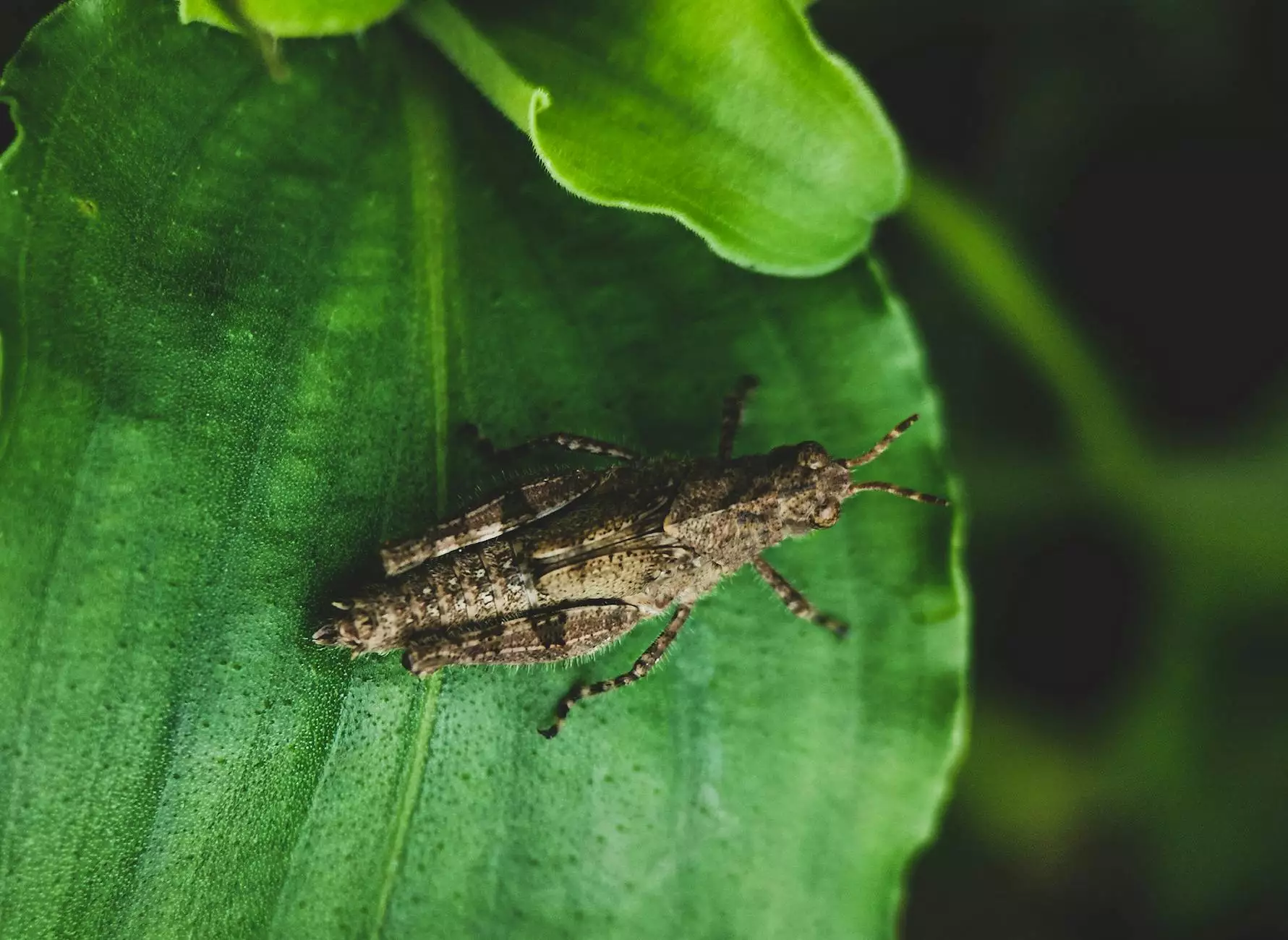Maximizing Agricultural Productivity: The Power of Insecticide for Rice Bug in Modern Farming Business

In the competitive world of agriculture, safeguarding crop yields is crucial to ensure business sustainability and profitability. Among the many pests that threaten rice crops, rice bugs stand out due to their devastating impact on rice production. To combat these pests effectively, farmers and agricultural businesses must leverage advanced pest control solutions such as an insecticide for rice bug. Coupled with reliable farm equipment repair and farming equipment, these strategies empower businesses to optimize productivity and maintain a competitive edge.
Understanding the Rice Bug Problem in Agriculture
Rice bugs, particularly the species Leptocorisa oratoria and Pseudotheraptus reticulatus, are prevalent pests that infest rice fields worldwide. Their larvae and adult stages feed on rice grains and plant tissues, leading to significant crop damage, reduced yields, and economic losses. The primary symptoms of rice bug infestation include discolored grains, empty husks, and unfilled rice kernels, which directly affect market quality and quantity.
Traditional pest control methods, while somewhat effective, often fall short in providing long-term protection. Therefore, integrating targeted insecticide for rice bug into a comprehensive pest management plan is essential for sustainable farming practices.
The Role of Insecticide for Rice Bug in Pest Management
Insecticide for rice bug acts as a critical component in the integrated pest management (IPM) framework. It is formulated to specifically target rice bugs during vulnerable stages of their life cycle, reducing their populations effectively and minimizing crop damage. The effectiveness of an insecticide depends on several factors, including its active ingredients, application timing, and adherence to safety protocols.
By employing a well-chosen insecticide, farmers can:
- Prevent early crop losses due to rice bug infestations
- Reduce reliance on broad-spectrum pesticides, thereby safeguarding beneficial insects
- Maintain crop integrity and increase economic returns
- Support sustainable farming practices with environmentally safe solutions
Key Attributes of Effective Insecticides for Rice Bug Control
When selecting an insecticide for rice bug, certain attributes are essential to ensure maximum efficacy and safety:
- Target-specific action: The insecticide should specifically target rice bugs with minimal impact on non-target organisms.
- Residual effect: A longer-lasting effect reduces the need for frequent applications, saving time and costs.
- Rapid knockdown: Quick action is vital to prevent further crop damage.
- Compatibility: The insecticide should be compatible with existing farming equipment and other pest management practices.
- Environmental safety: It should pose minimal risk to the environment, including water bodies and beneficial organisms.
Integrating Insecticide for Rice Bug with Modern Farming Equipment
Effective pest control is not solely dependent on the choice of insecticide. The deployment of suitable farming equipment is crucial for optimal results. Modern farm machinery, such as precision sprayers and automated dosing systems, ensure uniform application of insecticides, reducing waste and exposing pests efficiently. This integration enhances the overall crop protection strategy, contributing to:
- Enhanced application accuracy
- Reduced chemical usage and environmental impact
- Lower labor costs
- Minimized manual effort and increased safety for operators
Farm Equipment Repair: The Cornerstone of Sustainable Agriculture
Consistent farm equipment repair ensures that machinery operates at peak performance, which is indispensable for effective pest management. Regular maintenance minimizes downtime and prevents costly failures during critical application periods. Companies like tsgcinc.com specialize in farm equipment repair and farming equipment, providing farmers with the tools and services needed to maintain operational readiness.
By investing in reliable machinery and prompt repair services, agricultural businesses can:
- Avoid delays in pest control applications
- Ensure precise and effective application of insecticides
- Extend equipment lifespan and maximize ROI
- Implement more sustainable and environmentally friendly farming practices
Strategies for Effective Use of Insecticide for Rice Bug
Applying insecticide for rice bug effectively requires adherence to specific best practices:
- Timing: Apply insecticide early in the infestation cycle, particularly during the egg-laying or nymph stages for maximum impact.
- Dosage: Follow manufacturer guidelines strictly regarding dosage to prevent resistance development and environmental harm.
- Application conditions: Use during favorable weather conditions—preferably dry and windless days—to maximize coverage and efficacy.
- Safety precautions: Equip applicators with protective gear to prevent chemical exposure.
- Record keeping: Maintain detailed records of application dates, weather conditions, and pest population levels to inform future pest management strategies.
Complementary Pest Management Practices
While insecticides play a vital role, sustainable pest management involves multi-faceted approaches:
- Crop Rotation: Diversify planting to break pest life cycles.
- Biological Control: Encourage natural predators like spiders and predatory insects.
- Resistant Varieties: Plant rice strains bred for pest resistance.
- Sanitation: Remove crop residues that harbor larvae and eggs.
- Monitoring: Regular scouting to identify early signs of infestation for targeted intervention.
Advantages of Partnering with the Right Equipment and Pest Control Suppliers
Collaborating with experienced suppliers like tsgcinc.com guarantees access to high-quality farm equipment, timely repair services, and innovative pest control solutions. Benefits include:
- Access to the latest pest control products, including advanced insecticides for rice bug
- Customized equipment solutions tailored to specific farm sizes and needs
- Expert advice on pest management strategies and equipment maintenance
- Cost-effective repair and maintenance services
- Training and support for efficient equipment operation and pest control practices
Conclusion: Boosting Business Success with Integrated Pest and Equipment Management
In the competitive landscape of agriculture, the success of your business hinges on effective pest management and reliable farming operations. Leveraging a targeted insecticide for rice bug combined with state-of-the-art farm equipment repair and farming equipment ensures your rice crops are protected and yields maximized. This holistic approach not only reduces losses but also promotes environmentally sustainable practices, ultimately leading to higher profitability and long-term growth.
Invest in quality pest control products and trusted equipment services today to secure your farm’s future. For expert solutions and innovative farming tools, visit tsgcinc.com and take the first step towards a more productive and resilient agricultural business.









